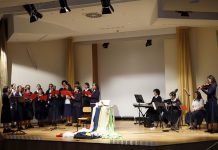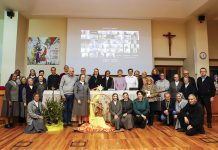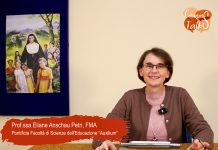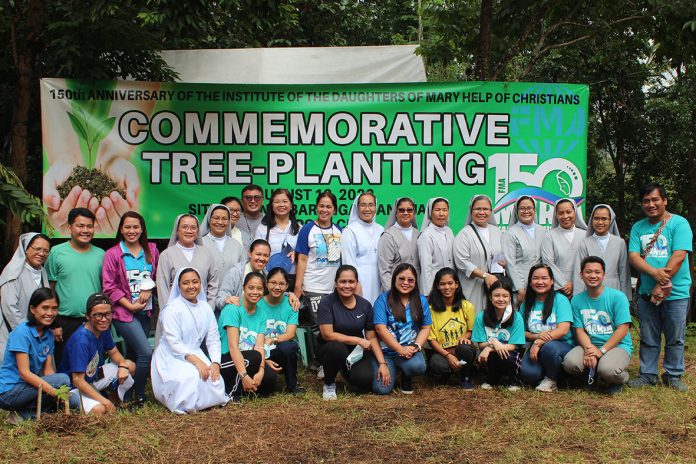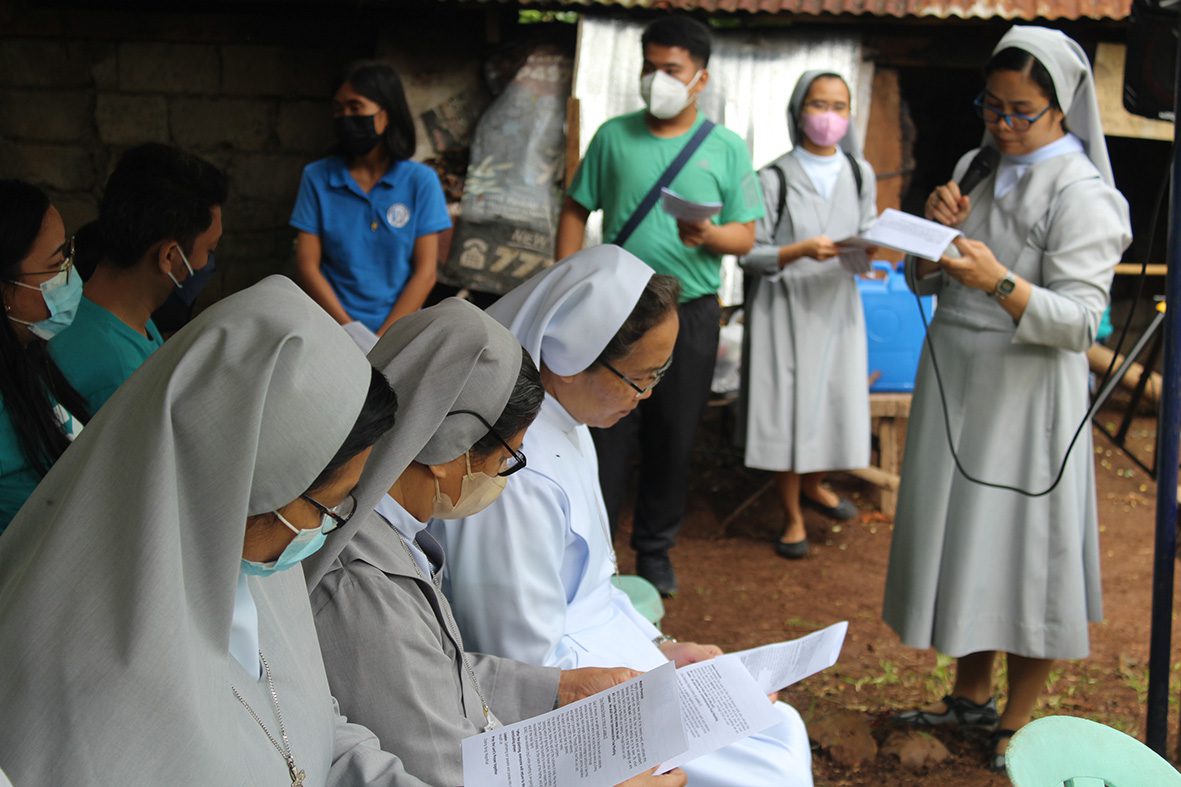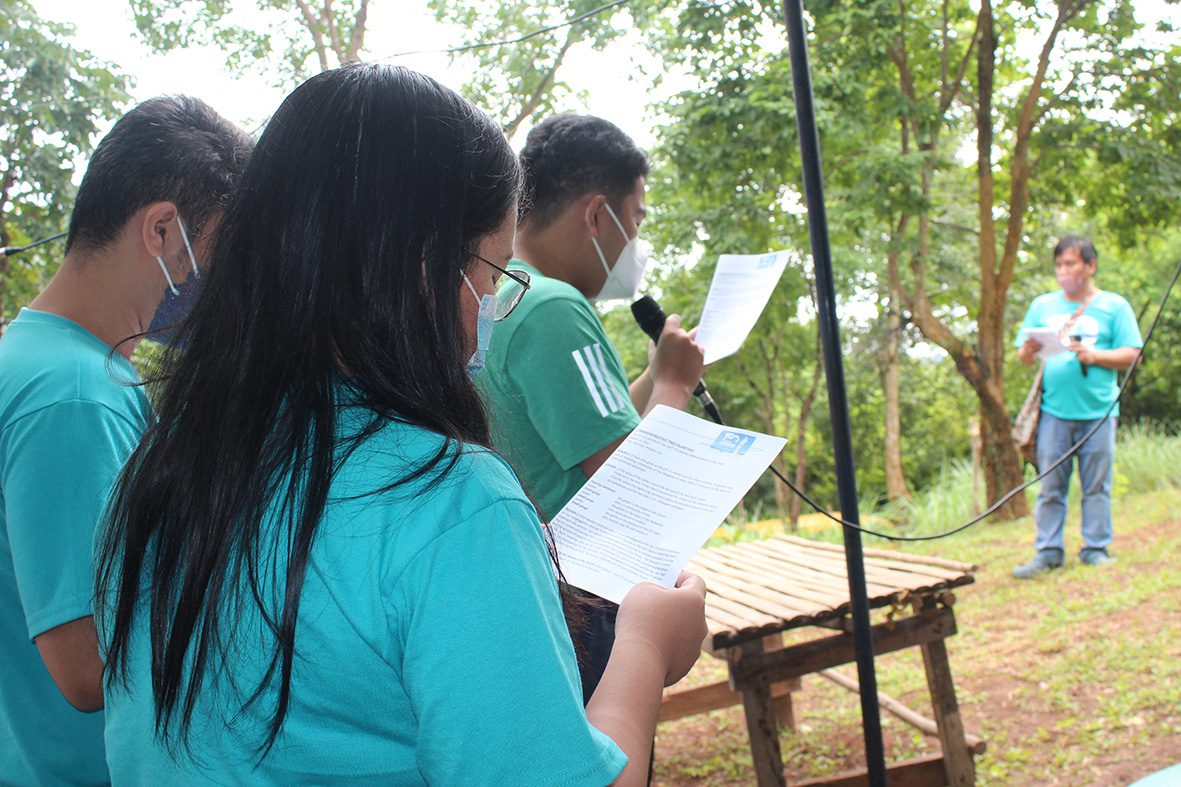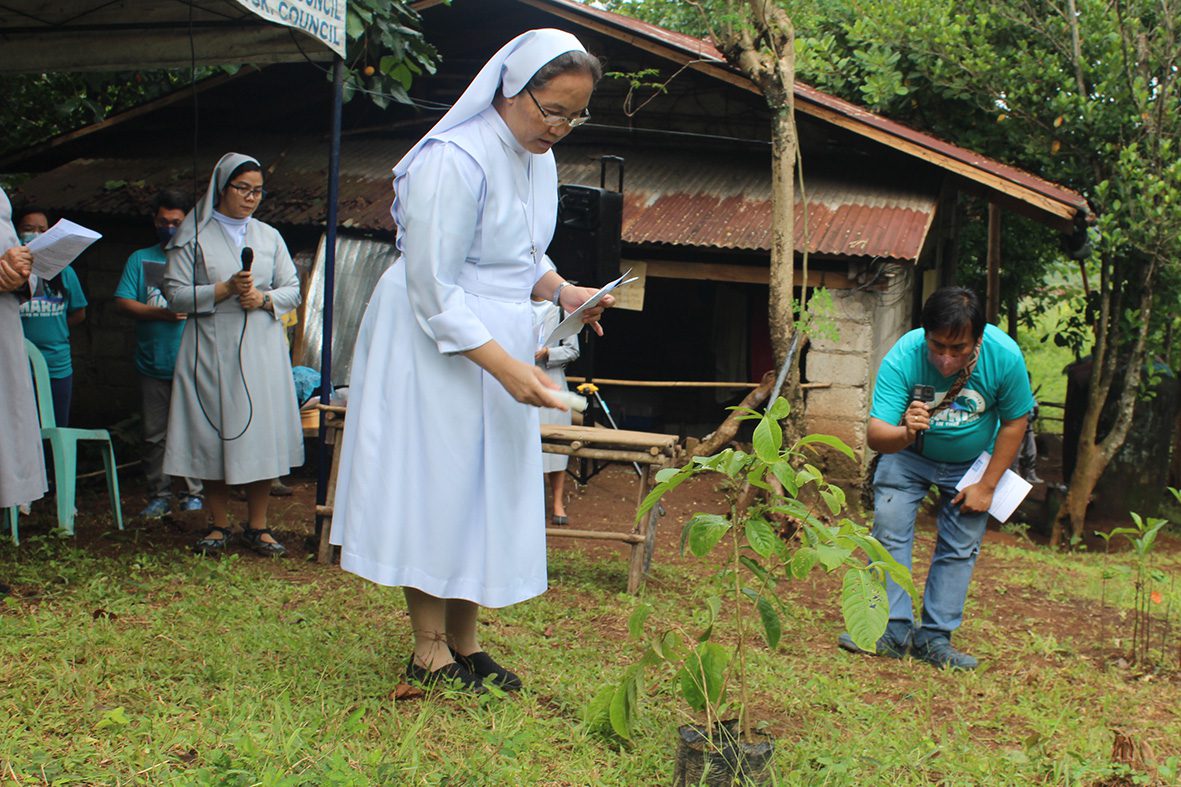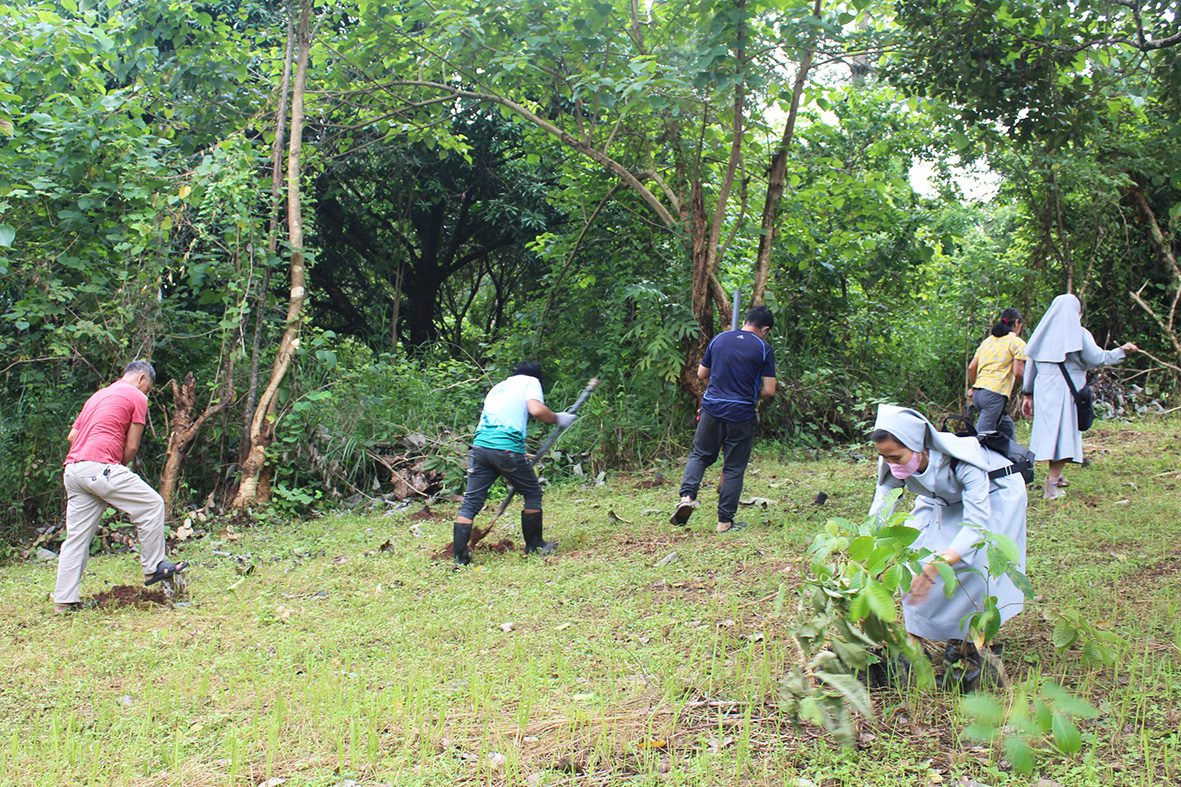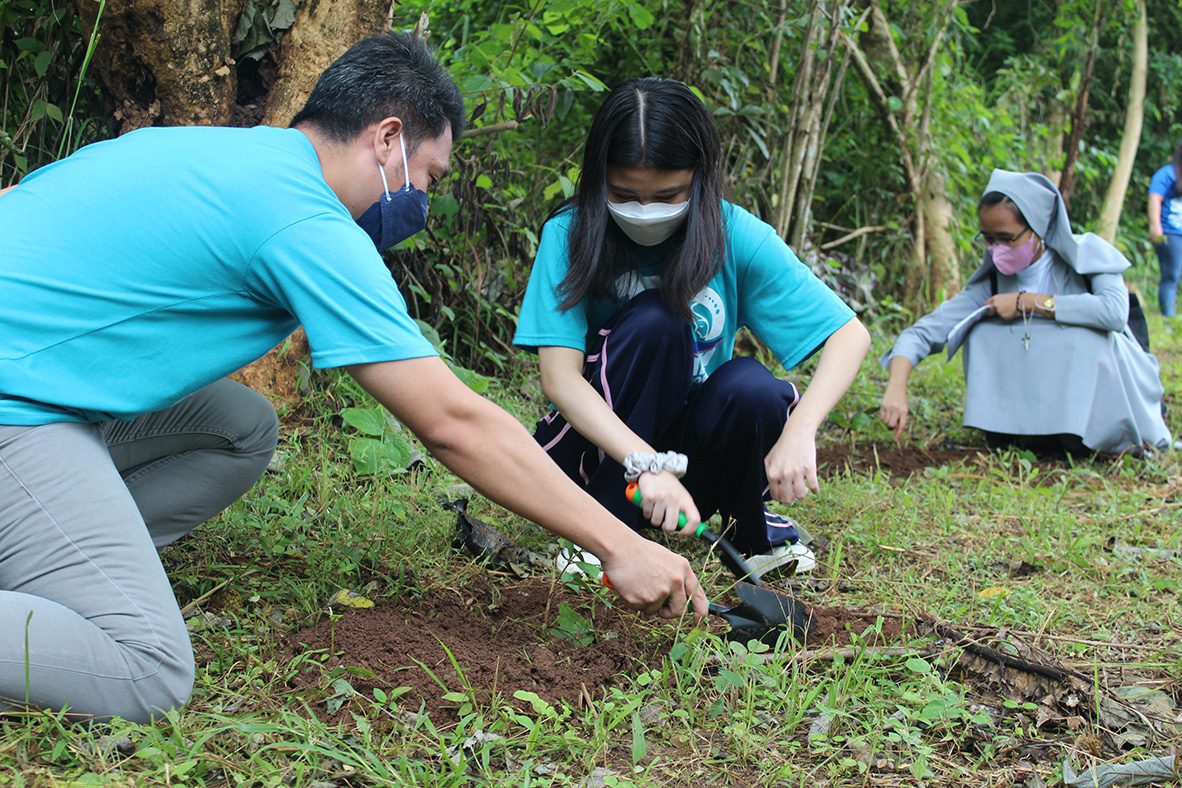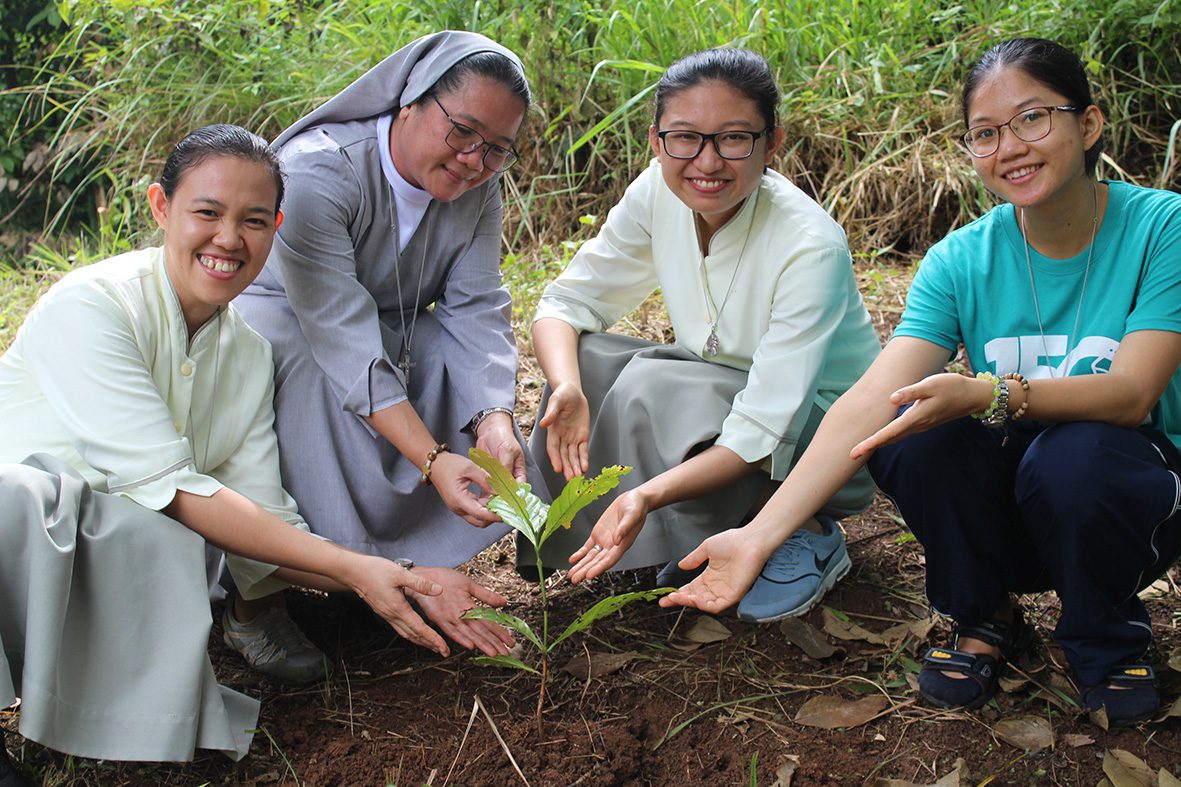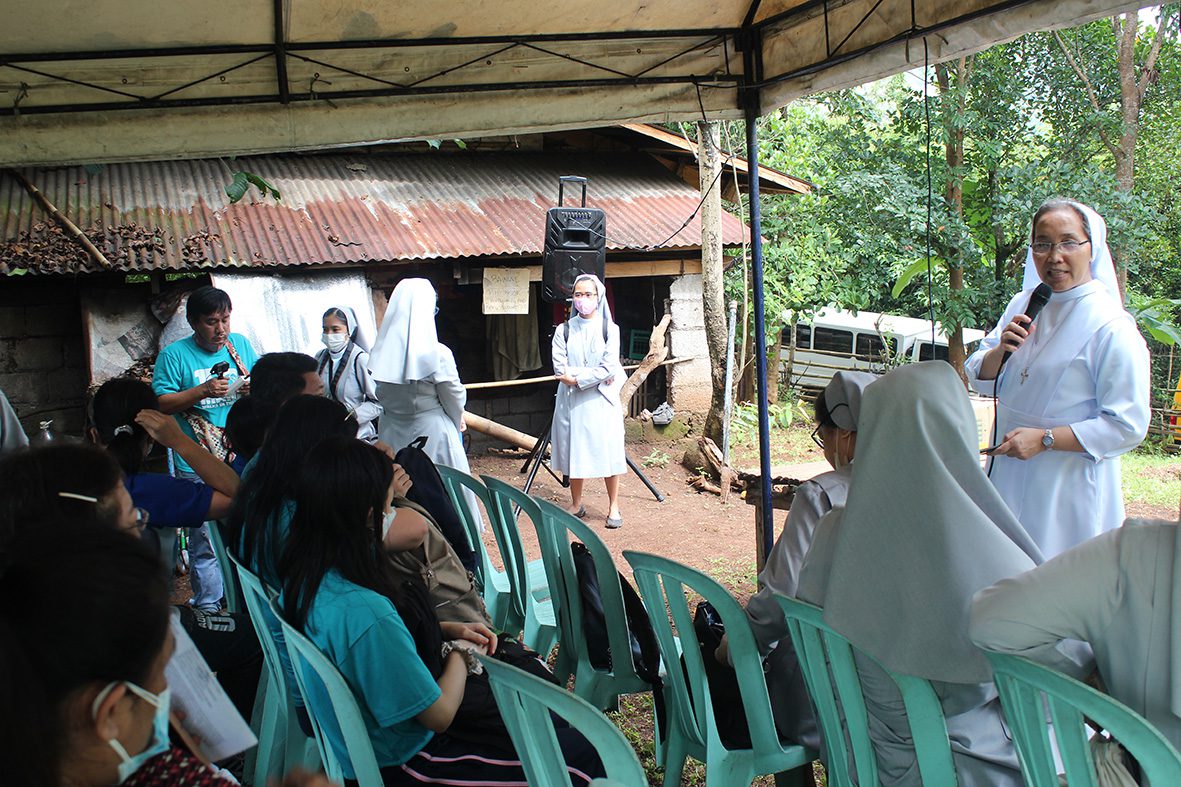Manila (Philippines). On 13 August 2022, in Barangay San Juan, Antipolo City, on the occasion of the 150th anniversary of the foundation of the Institute of the Daughters of Mary Help of Christians, the Provincial Council of the Province of St. Mary D. Mazzarello (FIL), in collaboration with the FMA Community of Don Bosco School of Manila, organized a planting of small trees.
36 people representing all sectors of the FIL Province participated and collaborated in this celebratory moment: the Provincial, Sr. Teresita Padron; several FMA and young women in formation; lay educators, leaders of the Educating Communities, young people, Salesian Cooperators, VIDES Volunteers, and Past Pupils, who reached the mountainous place together about an hour and a half by car from the Provincial House of Manila.
A month earlier, the FMA made a request to the Department of Energy and Natural Resources in Manila for 150 seedlings of non-fruiting trees in honor of the 150th anniversary of the FMA Institute. The seedlings were given free of charge to be planted along the perimeter of the plot of land owned by the FIL Province.
The planting of the small seedlings was preceded by a moment of prayer and praise to God for the 150th anniversary of the FMA Institute and for the wonders of creation, in line with the Laudato Si’ initiatives of the Church.
The blessing of the plants and the land introduced the start of the planting of the seedlings, which took place with a background of religious music, to emphasize the prayerful dimension of the activity. The moment was also blessed by the good weather, which allowed the success of the work. Despite the days of intense rain of the previous weeks, during the planting of the trees it did not rain and the clouds protected the participants from the scorching sun. The rain returned to fall copiously only in the late afternoon.
After the trees had been planted, the experience concluded with the gratitude of the Provincial to all the participants.
“Education in environmental responsibility can encourage various behaviors that have a direct and important impact on caring for the environment (…). All this is part of a generous and dignified creativity, which shows the best of the human being” (Laudato Si’, 211).



